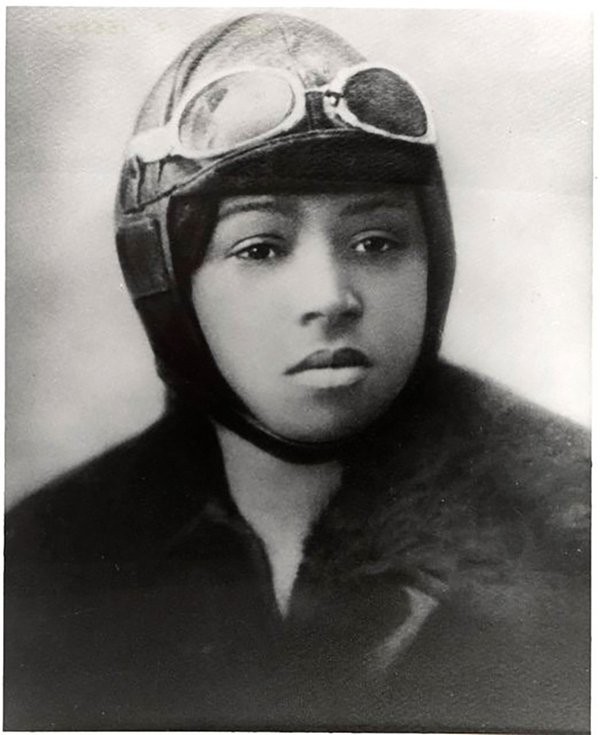Kimbrell, Former Cadet and Air Force Trailblazer, Returns to CAP
During Women of Aviation Week, we feature Lt. Col. Rochelle Kimbrell, the former Civil Air Patrol cadet who rejoined the Colorado Wing after a 22-year military career during which she became the U.S. Air Force's first Black female fighter pilot.
 For retired U.S. Air Force Lt. Col. Rochelle Kimbrell, the road to becoming the military branch’s first Black female fighter pilot can be traced to her days as a Civil Air Patrol cadet in the Colorado Wing’s Parker Composite Squadron.
For retired U.S. Air Force Lt. Col. Rochelle Kimbrell, the road to becoming the military branch’s first Black female fighter pilot can be traced to her days as a Civil Air Patrol cadet in the Colorado Wing’s Parker Composite Squadron.
Nearly 31 years after originally joining CAP on April 1, 1991, at age 14, she’s again part of the organization. Now a member of the Pikes Peak Composite Squadron, she especially enjoys speaking with young people who may not realize the sky’s the limit until they meet her.
As she speaks with them, she draws on her experiences as an Air Force Academy graduate and as a fighter pilot in sharing advice about pursuing their dreams. Kimbrell retired from the Air Force after 22 years and then rejoined the Colorado Wing, where she holds the CAP rank of lieutenant colonel.
“I literally see the lights turn on in kids' eyes when I talk to them as they realize that someone like me can do something as cool as being a fighter pilot,” she said. “They come to see that they can go out and do whatever they want to do. That’s what I focus on and what I think is really important. Civil Air Patrol can help achieve dreams.”
Her road to success wasn’t without challenges. She faced personal, cultural, gender, and societal obstacles along the way.
“Any time you are trailblazing to become the first in anything, there are obstacles and barriers,” Kimbrell said. “I had to build a solid foundation in order to overcome the obstacles I faced. I had to focus on my self-confidence and my internal drive and search for my self-worth.
She credits her internal drive as the fuel that kept her moving forward to her dream of becoming an Air Force pilot.
“Finding my worth and value in my squadrons was much more challenging because it was something that I did not solely control,” Kimbrell said. “I came up at a time when the value of an individual’s journey was not celebrated. We focused only on the team and treating everyone equally, which meant the same.
“Equality didn’t always bring equity in the journey, and the way that it was executed did not always create a feeling of individually being valued by the team.
“As a result of struggling with my individual value, it was challenging to bring my ‘A’ game to the team every day,” she said. “My internal drive and my self-confidence were what I relied on to overcome all of the other obstacles that were put before me. Belief in myself was invaluable and the only way I was able to survive as a trailblazer. “
As a CAP senior officer and cadet orientation flight pilot, she encourages young men and women of all backgrounds to embrace aviation. She tells them to “dare to dream; you are worthy and deserving of an opportunity to pursue your dreams. Any journey that is worthwhile will involve risk and growth. Get outside of your comfort zone; success requires failing and learning from each failure.”
Kimbrell is an example of someone who lives out each of CAP’s core values -- integrity, volunteer service, excellence, and respect -- every day. At this stage of her life, respect especially resonates with her.
“Respect is twofold -- respect for self and respect for others. If I can start with respect, the rest follows,” she said. “When we respect people for who they are, it is easy to be excited about volunteering and being of service in people’s lives.
“As a result of this desire to serve we will strive to provide excellent service and interactions with people that we respect.”
Respect is an important part of building relationships of trust – a critical facet of leadership, Kimbrell said “Knowing your people, what drives them, what prevents them from performing their best, what their life priorities are, is critical to building trust in those that you are leading,” she said.
“Knowing your own shortcomings and being vulnerable and transparent with those that you are leading is also critical to building trust. Trusting those you are leading to do their part and challenging people can really enhance teamwork as well.”

She regards learning how to “fail forward” as a key part of a leader’s growth. While failing may be hard, doing so becomes truly beneficial when leaders embrace it, learn from it, and become comfortable sharing these lessons with their team.
Recently, Kimbrell was asked to take part in a Discovery Channel CuriosityStream documentary on Bessie Coleman, the first Black woman to earn a pilot's license. Kimbrell had a chance to talk about her early interest in aviation and the opportunities provided to her as a CAP cadet. The feature also includes footage of her piloting an orientation flight with a female Colorado Wing cadet.


